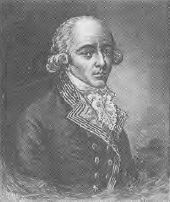- Author
- A.N. Other and NHSA Webmaster
- Subjects
- History - general
- Tags
-
- RAN Ships
- None noted.
- Publication
- December 1992 edition of the Naval Historical Review (all rights reserved)
The British decision was sufficiently important for the French to have sent a courier to a place La Perouse was scheduled to visit and he was ordered to discover the extent of the British plan. The sequel, of course, is that La Perouse arrived off Botany Bay two days after the arrival of the First Fleet. Little publicity is ever given to the fact that fear of the French and the Dutch in northern Australia led to Norfolk Island, Tasmania, southern Victoria, Western Australia and the Northern Territory being garrisoned and settled, yet the advocates of the convict colony concept do not allow fear of foreign annexation to have been a factor at all in the decision to establish the first settlement in New South Wales.
The south-west and west coasts, had of course, been discovered 150 years before Cook discovered the east coast. The quickest way to the East Indies was to sail with the prevailing wind due east from the Cape of Good Hope for some 3,000 miles or when the coast of Western Australia was sighted and then north. But the East Indies were difficult for sailing ships with monsoons, calms, narrow straits, pirates and unhealthy ports. For Britain there was the added problem of the Dutch and Spanish bases.
Cook’s Third Voyage had opened up the north-west coast of American and its fur trade, Britain was also trading with China. A few months before the First Fleet sailed 29 of the 41 ships in Macao were British. A safe, healthy and good sailing route to the Pacific and China that by-passed the Dutch and Spanish bases in the East Indies must have been attractive.
Three of the nine merchant ships in the First Fleet sailed for China when they were released in Sydney and 40 out of 116 ships departing from Sydney in the first 12 years gave China as their destination.
The settlement of New South Wales had been urged from 1783 by a number of influential people who had all stressed the commercial, political and strategic advantages. It was thought to be an ideal place for the American loyalists who had been uprooted by the War of Independence. Settlers had also been proposed from China and the islands in the Pacific with Britain only providing a relatively few specialists and tradesmen. When the possible use of convicts had been mentioned they were easily incorporated into the various proposals.
It is important to note that whilst the decision to form a settlement was made in August 1786 the First Fleet did not sail until May 1787 and during that time, as will be shown, there was a noticeable change in how the new colony was seen at the highest level. Very little attention has ever been given to this aspect.

Phillip received his First Commission in October 1786 which was of a military nature and the other officials received their commissions at the same time. There is no mention of a convict colony in any of the commissions. As it was necessary to legalise sending convicts to a particular place an Act of Parliament was passed at the end of January authorising transportation to the project colony. This Act contained a portent or presage which read “Whereas it may be found necessary that a colony and civil government should be established in the place to which such convicts shall be transported”. That eminent jurist and legal historian the late Sir Victor Windeyer said of this “The new settlement was now seen to be not merely an overseas gaol or just a garrison port under military command, although for some years those would be its most obvious characteristics”.
A Second Commission was given to Phillip at the beginning of April – a month or so before the First Fleet sailed. This was a remarkable document and was couched in words that had been long in use in the commissions of the Governors of British colonies in America and was in no way inferior to those commissions. It had been said that “it is probable that not since the days of Gilbert and Raleigh, had anyone sailed from England with such a delegation of authority as Phillip held”.




